










Sarath Shyam
Consultant Editors
Sruti PS
Komal Banchhor
Anna Elza
Anuja Mulmule Roshni RajagopalSuchita Gonsalves
Editorial Enquiry: admin@cxooutloo.com
Ajay K Das Manjunath R
Rohith Poojary
Sales Enquiry: admin@cxooutlook.com
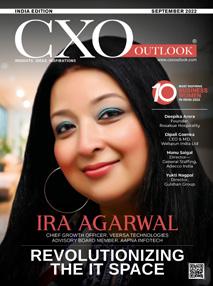

Americas
Connecta Global LLC 16192 Coastal Highway, Lewes, DE 19958, USA Europe
Connecta Global Ltd. 27, Old Gloucester Street, London, WC1N 3AX, UK
Middle East
Focus Innovation Technologies FZE P.O. Box 48299, Dubai Silicon Oasis, Dubai, UAE
Asia-Pacific
Connecta Innovation Pvt. Ltd. Ramanashree Arcade, 18 MG Road, Bangalore – 560001, India
CXO Outlook is a digital magazine published by Connecta Innovation Private Limited. All rights reserved. The opinions expressed in the content and pictures provided are those of the authors. They do not purport to reflect the opinions or views of the Connecta Innovation Private Limited or any of its members and we do not assume any responsibility. The publisher does not assume any responsibility for the advertisements, its content, pictures, and all representation of warranties made in such advertisements are those of the advertisers and not of the publisher. CXO Outlook is a Free Subscription digital magazine strictly not for sale and has to be strictly for internal private use only. Publisher does not assume any responsibility arising out of anyone printing copy of this digital magazine in any format and in any country and all matters related to that.









Workplace diversity, equity and inclusion are some of the most discussed topics in the recent past. In tune with the changing social and cultural patterns of society, organisations around the world have been promoting diversity as an operational strategy to attract and retain talent and attain a competitive edge. However, the underrepresentation of women in leadership positions, especially at the top ranks of an organisation, remains a challenge.
There indeed exists an unconscious bias that often affects the opportunities and roles available to women. A McKinsey study revealed that the glass ceiling in the industry prevents women from having equal access to both entry-level and higher-level positions. Women are already less likely to be hired in starting positions, to begin with, but the disparity further increases as employees move up the corporate ladder.
The recent pandemic further worsened the leadership aspirations of women around the world. A survey by Deloitte found that 51 per cent of women are less optimistic about their career prospects than they were before the pandemic. Many women who have chosen to stick to their jobs have missed a fair promotion or raise. A LinkedIn report shows that 85 per cent of women in India have missed out on a raise or promotion
because of their gender. In fact, for every 100 men promoted to manager, only 86 women are promoted, says another McKinsey study.
However, several women in the country have managed break the Glass Ceiling in the Business World to reach the leadership roles they deserve. In this issue, we celebrate the success of such leaders by presenting the ‘10 Most Inspiring Businesswomen in India - 2022.’ On the cover, we feature Ira Agarwal, Chief Growth Officer of Veersa Technologies, leading the company to achieve unprecedented organisational growth and promotion at the global level. In addition, Ira effortlessly juggled and continues juggling multiple roles. She also holds a prestigious position as the Advisory Board Member at AAPNA InfoTech.
Enjoy Reading.
Sarath Shyam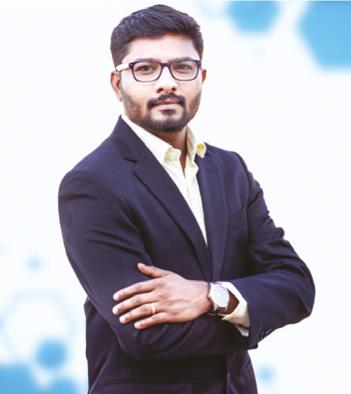








Saundarya
Arpita
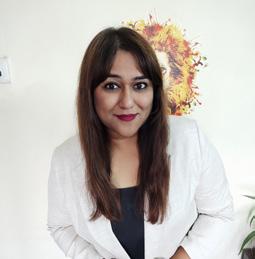



Namitha






IN MY VIEW
26-year-old Maitri often felt like an outsider, growing up. And it is for a reason that was both simple and complex at the same time – she was left-handed. Apart from struggling to do basic things from opening a refrigerator door to scissors to even using a pencil sharpener, she often felt ostracized due to superstitious beliefs around her. Instead of getting through life, with a ‘little adjustment’ as suggested by the family, Maitri decided to use her uniqueness to her strength. And thus, Maitri Wadher started ‘The Left-Out Store’ in Bangalore which sold products meant exclusively for left-handed people – a very profitable

niche, one that presented a business opportunity built around a universal truth – that people are different.
The world as we knew it underwent a paradigm shift with the COVID 19 pandemic. This unforeseen and disruptive health crisis which we continue to live through, has challenged the way we function and operate. It necessitated adapting to change in several dimensions across individuals’ lives - both personal and professional. And since organizations are made up of individuals, the challenges of flourishing in the ‘new normal’ are manifold.
Anecdotal experiences and scientific research both point towards the fact that DEI will be one of the critical differentiators in how companies weather this storm
Dr Saundarya Rajesh was a woman, who after a career break, was seeking to return to the workplace. Despite burgeoning career opportunities in a globalized economy, Dr. Saundarya noticed that women were receiving a raw deal. This was even more aggravated in the case of women who took breaks in careers. Observing the loaded inequities in the workplace for all underrepresented talent pools, she set up Avtar – a social enterprise focusing on creating diverse, equitable and inclusive organizations. Today, she is recognized not only as having created several thousand careers for women on breaks, but also for pioneering the discipline of Diversity, Equity & Inclusion in Indian workplaces.


Anecdotal experiences and scientific research both point towards the fact that DEI will be one of the critical differentiators in how companies weather this storm.
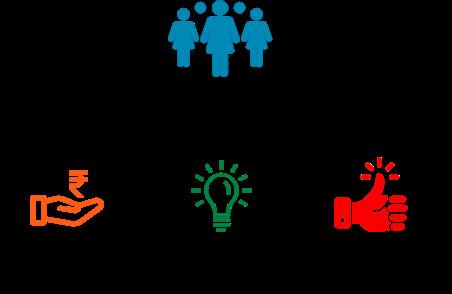
It is a natural human tendency that we like people who are like us, who think like us and who respond the way we do. In the workplace this results in an extremely homogeneous employee base which is then challenged to service a heterogeneous customer base. Is this desirable and sustainable?
The answer would be an emphatic no. It is apparent that customer cohorts of today act very differently basis their age, generation, geography, gender, demographics, social sensitivities, economic status, race, ethnicity, etc. In an era where customers expect hyper-personalization, it is imperative that business structure and
decision making is inclusive and caters to the aspirations and requirements of various customer cohorts. Any misstep in this journey can be very expensive as has been seen in the recent social media backlash faced by some of the most prominent brands.
Research over the past few decades has proven categorically, that companies that are diverse, equitable and inclusive have a clear advantage over their counterparts that are not. And these advantages are overt, measurable evidence for the business in terms of revenue, peoplepower, and the culture of the workplace. A Boston Consulting Group study looked at companies with diverse management teams and found that, on average, they enjoyed a 19% increase in revenue compared to their less diverse counterparts. According to the 2021 Avtar and Seramount Best Companies for Women in India (BCWI), the annual DEI analytics study that
identifies the 100 best companies for women in India, pursuant to a year-long process of assessment, 62 companies recorded an increase in operating profit, 52 companies posted improved innovation revenue and 81 companies reported an increase in customer satisfaction, during a time-frame women’s representation grew up by 2.9% as shown in figure 1.
the investment on inclusion. To fully leverage the power of Diversity, organizations must invest to create an inclusive work culture - one where every individual feels included, belonged, supported, heard, and cared for. When Inclusion becomes the way of life, diverse views are encouraged, newer opportunities, ideas are unlocked and expensive mistakes avoided thus making the business resilient, sustainable and on the growth path.
This is easier said than done. Data from the PLFS Quarterly 2022 reported that the female labour force participation rate (FLFPR) had dropped to 20.3% in March 2022 compared to 21.2% one-year prior. 92% of India’s trans population are unable to participate in any economic activity. These stats point to the bitter truth that the abundance of diversity in the society has not translated much into participation in the labor force or some form of economic activity. Hence the time is ripe for us to evaluate the need of an ecosystem where enterprises can proactively fuel economic and social change for India.
Going a step further, does only having a diverse employee base suffice to build inclusive products?
A diverse workplace with limited scope for expression and acceptance is under-optimizing
Organizations that are vanguards of inclusion have to show the way. Some of India’s top organizations which have consistently won laurels for creating diverse, equitable and inclusive workplaces, have proven that not only is it possible (with some effort) to create careers for the underrepresented, but also an eminently successful business practice. Companies which today are veritable islands of inclusion, can transcend from being inclusive spaces for only their own employees to becoming influencers of a virtual spiral of change that extends beyond the walls
Some of India’s top organizations which have consistently won laurels for creating diverse, equitable and inclusive workplaces, have proven that not only is it possible (with some effort) to create careers for the underrepresented, but also an eminently successful business practice
of their own businesses. Organizations which have traversed the journey of building diverse, equitable and inclusive cultures can lead this from the front by impacting businesses of different sizes (start-ups, MSMEs) within their own eco-system. Championing this change will not just result in a positive cycle of community development. It will be the start of a tremendous revolution of inclusion that opens up growth opportunities all around.
At Avtar, we have launched the “Business is Good” (BIG) initiative, a corporate mentoring
program for the champions of inclusion to support the new entrants into the journey of DEI. Through this program, we aspire to help larger role-model organizations to offer their support to partners within their sphere of influence in understanding the nuances of DEI as a growth influencer. We aim to empower the forerunners in the inclusion journey with tools that will help them share both subtle and overt changes linked directly or indirectly to DEI. Besides being stellar corporates that have achieved the pole position of being an exemplar of inclusion, our corporate leaders will also be recognized as brand that create positive 360-degree business influence.
We estimate that BIG will impact around 1,00,000 employers in India in the next 5 years and through this process improve the labor force participation rates of women and other underrepresented groups. BIG meets two objectives – one, giving an opportunity to organizations to be an inclusive change agent and second, to create stand-out brands.
Progress cannot happen when few are making efforts and others are simply watching. Like the popular quote goes “It takes a village to raise a child”, now is time for enterprises to create an ecosystem to drive change and support others to get initiated on the DEI journey. It is time we realize that it is no longer a “choice”, but a business imperative for businesses to be good. A good business is not only good for its employees, but for its customers, shareholders, suppliers, partners, and society at large. It takes a BIG campaign to create development for this big country of ours!
It is time we realize that it is no longer a “choice”, but a business imperative for businesses to be good





oday, digital transformation that has subsequently led to business model innovation has disrupted many markets. This change inspires business owners to invest in advancing technologies such as AI, ML, IoT, cloud-based data analytics, and blockchain.
While these technologies enable businesses to rethink how information is consolidated, data analysed, and decision-making improved, most business leaders have yet to fully understand and implement a business strategy involving these technologies. While aware of the untapped potential of implementing emerging technologies, most business leaders should seamlessly and successfully deploy them within their organization.
Ahead of most top executives and on par with trending technologies is business titan Ira Agarwal with over 20 years of experience in the IT industry. She holds the Chief Growth Officer position at Veersa Technologies, leading the company to achieve unprecedented organizational growth and promotion at the global level. The company works with several technologies such as ML, AI, IoT, blockchain, unstructured data analysis, advanced UI technologies, and cloud-based data analytics solutions. The organization was established with the vision to develop software technologies that disrupt the implementation of "Systems of Innovation" for its customers in tandem with the mission to harness the power of trending technologies and utilize the deep insights attained to revolutionize businesses.
Veersa Technologies proprietary data ingestion of ML modeling platforms, curated data assets, and in-depth technical expertise

helps customer to avail quick time-tomarket solutions and eliminate any business challenges solved through highly advanced ML and data analytics offerings.
As Ira embarked upon the journey of CGO at Veersa Technologies, the reins have been handed over to her to help steer the business through client management, organization promotion at a global platform, business expansion, and alignment with the latest industry trends and technologies. Ira ensures increased collaboration through networking, building alliances and partnerships, implementation of the latest analytical tools and technologies, and utilization of marketing automation and social media intelligence.
In addition, Ira effortlessly juggled and continues juggling multiple roles. She also holds a prestigious position as the Advisory Board Member at AAPNA InfoTech. This role

demands her to proffer new insights, strengthen technology COEs, and scale the business. She steers the reins of the organization's digital transformation. The organization specializes in Enterprise Application Development, Robotics Process Automation, Hyper Automation, Mobile Application Development and Quality Assurance.
Before commencing her career as a working professional, Ira completed Engineering in
Computer Science; Project Management from the University of California, Berkeley. In her two-decade-long fulfilling career, Ira has worked with many well-renowned Fortune 100 companies that have helped her shape the career path she looks back at today. With her complete market understanding, curiosity to drive innovation, and industry-rich expertise, she led tech delivery operations & managed Innovation
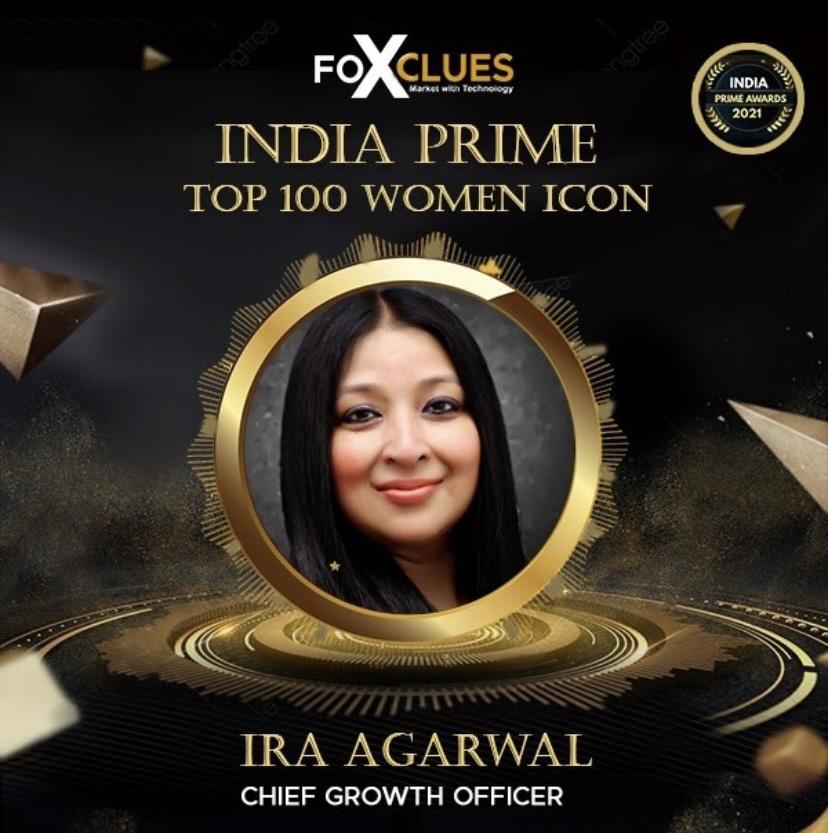
centres of TCS, HCL America, and Genpact, to name a few. In her various roles, she has helped clients unravel the power of data and AI, enhance delivery and create novel digital experiences that would help businesses catapult to greater heights. In roles primarily viewed as a male-dominated industry, Ira has surpassed every expectation in


the sales and marketing domain while attaining IT business growth.
And it is through her impressive work that Ira has been recognized as a true business leader and received several accolades. She topped LEAP program (Leadership Excellence Acceleration program) constituted by Duke Corporation Education, a spun out of Duke University’s Fuqua School of Business. This program is a constant recipient of the BRANDON HALL OF FAME GOLD AWARDs. Over the years, Ira has made huge impact on the IT industry with her outstanding performance, business expansion, innovation, and excellence in delivery. She has published research/white Papers, blogs and articles on
Prediction Models, Artificial Intelligence, Artificial Intuition, RPA, Digital Centre of Excellence, DevOps and Mobile Testing.
Some of her other notable accomplishments are the Genpact prestigious Diamond Awards for exceptional Innovation, Performance, and Demonstration of Values and Genpact
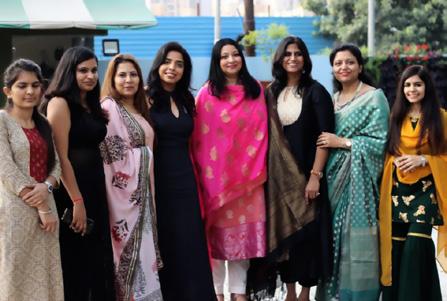
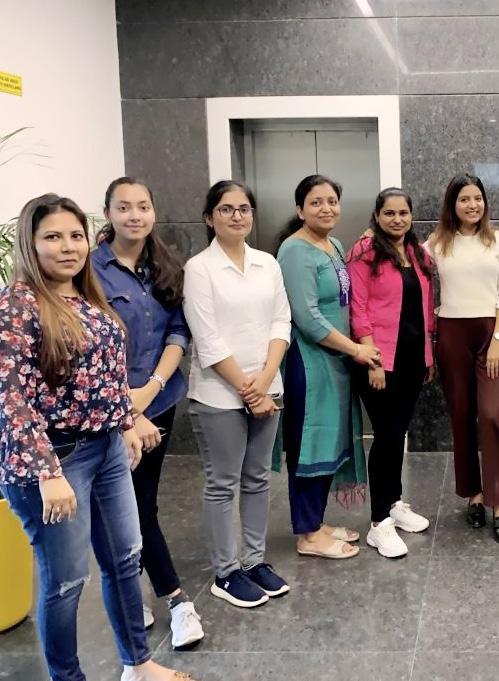
IRA IS AN INCREDIBLY PROUD MENTOR THAT DERIVES PLEASURE IN NURTURING YOUNG TALENTS WHO HAVE GONE ON TO EXCEL IN THEIR SPECIFIC FIELDS OF INTEREST
Confluence Award and Gold Award for extraordinary Global Delivery Management, Customer Delight, and Thought-Leadership. She has also featured as Global IT Women Leader in Genpact's Gender Diversity and Inclusivity Initiative. In conjunction with this, Ira has also received the Techspan Gold Star Award and Headstrong Pillar of Strength Award for superlative performance and excellence. Furthermore, she was recently featured in the Million STEM Campaign as one of the top 50 female role models that inspire
the next generation of women in the tech space. She continually strives to make a difference and contributes to a gamut of social initiatives. She also promotes and supports girls' education and that of underprivileged children. With digitization taking over, she conducts online classes for the less educated class of women and has built numerous tinkering labs for school students. Her work has been appreciated, and she has been awarded the WILL Women’s Choice Awards 2022 and 2021, Global Achiever Award 2022 by Indian Achiever Forum, Global Women Inspiration Award 2021 by I CAN Foundation, and Emerging Women Leader in Technology Innovation Award 2021 by GISR Foundation & IIWA.
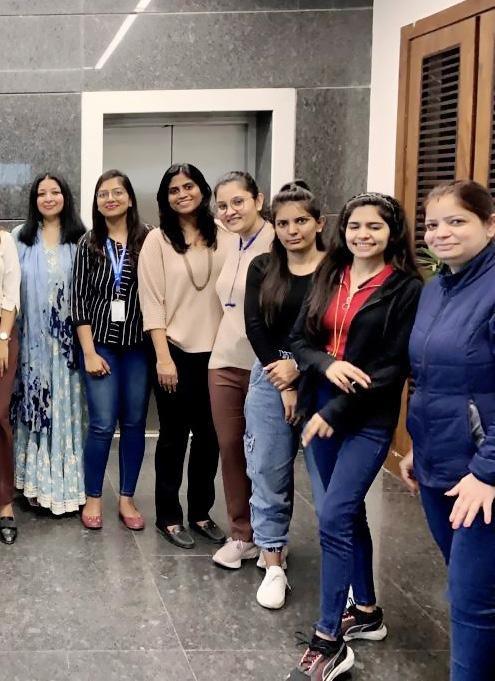
The growth she has achieved in just over two decades is astounding and well-deserved and is only possible through her relentless perseverance and drive to bring about a positive change in this industry. She is an incredibly proud mentor that derives pleasure in nurturing young talents who have gone on to excel in their specific fields of interest. As she signs off, she shares with us what she feels is the mantra for holding one of the leadership positions through continuous skill enhancement. This can be achieved through social media engagement, technical conferences, comprehensive training, and networking with the industry’s tech gurus to stay updated on the current market and industry trends. Ira envisages continuing to make a difference in this domain through her sheer commitment and skills.

Namitha Chiluveru, Director of 360 Life is more into getting knowledge and making full use of those ideas in real life to make this world a better place to live. With a master’s in retail & luxury management, she completed her interior design course at the New York School of Interior Design. Now working with 360 Life and managing verticals like interior design, marketing, branding, etc. She promotes sustainability in every aspect. 360 Life along with Namitha is breaking all the monotony and building a space that takes care of customers’ health with luxury and comfort.
COVID-19 might be thought of as a late lesson from an early warning. The pandemic arose from the complex interaction of factors such as environmental disturbance, urbanization, international travel, and climate change. Undeniably, pandemics are more likely as the environment deteriorates. Human health and ecological sustainability are intrinsically tied. To protect human health, a shift to a sustainable society and economy is required. It has been around 2.5 years since the globe is dealing with the Covid health crisis, as well as the climatic swings that occur regularly, and because of this, sustainable living appears to be the only viable option. Such a lifestyle correctly curates healthy living in line with a healthy environment by making efficient use of resources for a quality life without harming the environment. Moreover, after the spread of coronavirus, many people are working from home. They spend most of their life’s time at home which is why one must not compromise with the quality of their house because that really matters a lot. Vertical forests imply living in harmony with the environment. Despite having great popularity around the world, our country India is still struggling with the issues of high population growth, pollution, and other environmental crises. Furthermore, the frequent climatic change because of forest degradation has resulted in numerous disasters in recent years. Environmental quality has deteriorated as a result of urban development, as well as the advent of numerous urban climatological problems and severe air pollution. The diverse environmental issues that occur provide a significant challenge in establishing a sustainable city. This is why it is vital to include greenery in India’s development efforts by looking
at one such concept of green infrastructure – the vertical forest.
The Vertical Forest is a construction model for a new type of architectural biodiversity that focuses on the relationship between humans and the environment they live in, rather than just humans. The Vertical Forest’s vision of being a “home for trees that also accommodates humans and birds” dictates not just the project’s urban and technological features, but also its structural language and expressive aspects. Vertical Forests
are not only dedicated to greenery but to a whole sustainable lifestyle promotion including health, wellness, quality of life, etc. India is going to welcome its first vertical forest in the Hitec City of Hyderabad very soon. There are various advantages to vertical forests, some of which are listed below:
● Vertical Forest provides habitats for life Vertical Forest contributes to increased biodiversity. It helps to construct an urban ecology in which a
The Vertical Forest is a construction model for a new type of architectural biodiversity that focuses on the relationship between humans and the environment they live in, rather than just humans
diversity of flora creates a vertical environment that can be colonized by birds, and so serves as a magnet for and a symbol of the city’s natural re-colonization by vegetation and animal life. The establishment of a network of environmental corridors in the city can add vitality to the city’s principal parks, linking together the green space of avenues and gardens and interweaving various regions of spontaneous vegetation growth.
The towers of the vertical forest are distinguished by massive, staggered, and overhanging balconies, which are meant to fit big outdoor tubs for vegetation and to allow the growth of larger trees without difficulty, even across three floors of the structure. They give the people living in a blissful and tranquil experience with 1000+ trees in the surrounding area and tiny ponds.
The choice of the types of trees is made to fit their positioning on the facades. There are several native trees and plants grown in vertical forests that possess medicinal traits, a few of which also repel mosquitoes and purify the air. Also, there are multiple balconies for each apartment with some fruit and vegetable-bearing plants. The need to grow organic herbs and veggies at the home has increased keeping in view the quality of the same available at local markets.
● Vertical Forest ensures a way forward to Sustainable Living
Vertical Forest aids in the creation of a microclimate and the filtering of dust particles found in urban environments. Plant diversity aids in the creation of humidity, absorbs CO2
and dust, creates oxygen, and protects people and their homes from damaging UV rays and sound pollution. The residences are outfitted with cutting-edge air management equipment that ensures a sufficient and regular supply of fresh, rejuvenating air throughout the building. With the help of innovative air quality monitoring systems, stale air is automatically removed and fresh air is supplied.
Living in a vertical forest apartment is more than just living in a house. It is living in a virtual environment, a universe that is both biodiverse and fascinatingly colorful, as well as an excellent stress reliever. There is a lot to see that is both pleasant and fascinating. There are numerous indescribable emotions to experience. The tall barrier separating illusion and reality has crumbled.
More than 90% of a person’s time is spent indoors. So, to improve air quality, vertical forests add a lot of benefits. They filter all the harmful pollutants that are present in the city and they help to reduce the temperature of the building.
The public will almost certainly benefit from such an initiative. The towers provide an alternate urban environment in which we can live in close proximity to trees, shrubs, and plants in the city.
With India welcoming its first and Asia’s second vertical forest, it is a big step forward toward sustainable living in urban spaces. With rising levels of air pollution, this concept for sustainable buildings is the way of the future.
Kanwaljeet Kaur, Cyber fraud Investigator, Consultant, and Trainer
Kanwaljeet Kaur is a global icon in the field of forensic accounting and fraud investigation. With her degree in chartered accountancy and extensive knowledge and skill set in corporate fraud investigation, she is a brand in herself. She is a founder of a start-up in the Edutech domain called Kapp Edge Solutions which provides fraud prevention and anti-money laundering training to Corporates, MNCs, banks, and government departments such as CBI, SFIO, and Customs, NARCO and working executives all over the world. Her second successful venture is into fraud prevention consulting called Krish Consulting. This boutique firm specializes in anti-money laundering anti-corruption corporate fraud investigation, forensic accounting and cyber security.
Social engineering is the art of manipulating people. Social engineering can also be understood as a means of exploiting human errors and behaviours to conduct a cyberattack. The types of information these criminals are seeking can vary, but it usually may try to trick you into giving them your passwords or bank information or giving them control over your
computer where the fraudster can access private and confidential information.
According to Verizon’s 2021 Data Breach Investigations Report, 85% of breaches involved the human element, while social engineering was an integral part of 35% of those incidents. The success rate of such attacks is close to 80%
Cybercriminals use the basic human emotions of trust and greed to convince victims that they really can get something for nothing

Cybercriminals pay attention to events capturing a lot of news coverage, and then take advantage of human curiosity to trick social engineering victims into acting
and approximately 45% of employees of the company DO open suspicious emails, just because they think “it might be important”.
Fear- You receive a voicemail that says you’re under investigation for tax fraud and that you must call immediately to prevent arrest and criminal investigation. Cybercriminals prey
on the stress and anxiety of filing taxes and use these fear emotions to trick people into complying with the voicemail.
Greed- Imagine if you could simply invest INR1000 into bitcoin under a specific scheme, and see this grow into INR10,00,000 without any effort on your behalf? Cybercriminals use the basic human emotions of trust and greed to convince victims that they really can get something for nothing.
Curiosity- Cybercriminals pay attention to events capturing a lot of news coverage, and then take advantage of human curiosity to trick social engineering victims into acting. “OMG, your images are live on the wrong pages of Instagram, someone put all your photos on there, and if that doesn’t get you to click, then maybe the closing line will: “You can even see who added you on it!” Can this really be true? the end-users may become curious and click on the link.
Helpfulness- Humans want to trust and help one another. Fraudsters target two or three employees of a company and send them an email that looks like a genuine e mail from their manager, the email asks them to send the manager the password for the accounting database. He stresses that it is required to make sure everyone gets paid on time. The email tone is urgent, tricking the victims into believing that they are helping their manager by acting quickly.
Urgency- You receive an email from customer support at an online shopping website such as amazon/flip kart, telling you that they need to confirm your credit card information to protect your account. The e-mail has not actually come from a genuine provider but it looks like the one. The email shows an urgency to respond quickly to ensure that criminals don’t steal your credit card information. Without thinking twice and because you trust the online store, you send your credit card information and your mailing address and phone number. A few days later, you receive a call from your credit card company telling you that your credit card has been used for thousands of rupees in fraudulent purchases.
1. Phishing: The most pervasive way of social engineering, fraudsters will use deceptive emails, websites, and text messages to steal sensitive personal or organizational information from unsuspecting victims.
2. Spear Phishing: This type of email scam is used to carry out targeted attacks against employees of a particular company. Fraudsters do as in-depth research on potential targets and their organizations before doing this attack.
3. Baiting: This type of attack can be perpetrated online or in a physical environment. The victim usually promises the victim a reward in return for sensitive information.
4. Malware: it may include ransomware, victims are sent an urgently-worded message and tricked into installing malware on their device. A popular tactic is telling the victim that malware has already been installed on their computer and, if they pay a fee, the sender will remove the software for them.
5. Pretexting: In this, the perpetrator assumes a false identity to trick victims into giving up information.
6. Tailgating: These attack targets individuals who can give the criminal physical access to a secure building or area.
7. Vishing: In this scenario, cyber criminals will leave urgent voicemails to convince victims they need to act quickly to protect themselves
Delete any request for financial information or passwords.
If you get asked to reply to a message with personal information, it’s a scam
from arrest by CBI, police or income tax authorities due to some irregularities in their financials.
8. Water-Holing: This attack uses advanced social engineering techniques to infect both a website and its visitors with malware. The infection is usually spread through a site-specific to the industry the victims operate in, like a popular website that’s visited regularly.
1. Delete any request for financial information or passwords. If you get asked to reply to a message with personal information, it’s a scam.
2. Reject requests for help or offers of help. Legitimate companies and organizations do not contact you to provide help. If you did not specifically request assistance from the sender, consider any offer to ’help’ restore credit scores, , answer your question, etc., a scam. Similarly, if you receive a request for help from a charity or organization that you do not have a relationship with, delete it.
3. Set your spam filters to high. Every email program has spam filters. Spam filters are available in G Mail as well which can be found in the settings options. Gmail spam filter is a very complex software that doesn’t require basically any attention to work as intended. You can, however, change some Gmail spam settings to tweak it to your liking.
4. Secure your computing devices. Install antivirus software, firewalls, and email filters and keep these up-to-date. Set your operating system to automatically update, and if your smartphone doesn’t automatically update, manually update it whenever you receive a notice to do so.

&
Headquarters: Noida,


About the Company: Veekends.com is a platform to house all ecologically run properties in the world. The company aims to create, support and enable eco-friendly property owners to run hotels, resorts and stays that contribute positively to the environment and local communities



Headquarters: New Delhi, Delhi
About the Company: Rosakue is a handpicked ensemble of boutique home retreats offering curated lifestyle experiences for the free-spirited, evolved traveller.
Veekends
Rosakue Hospitality
Headquarters: Mumbai, Maharashtra
About the Company: Welspun Group is one of India's fastest-growing global conglomerates with businesses in Line Pipes, Home Textile Products, Infrastructure, Warehousing, Steel, Oil & Gas, Advanced textiles and Flooring solutions.

https://www.welspunindia.com/ https://veersatech.com/ https://www.adecco.co.in/
Headquarters: Bengaluru, Karnataka
About the Company: AscentHR’s customized HR solutions strengthen clients’ business infrastructure, processes and enable them to be more flexible, accessible, efficient & secure. Thus, sharpening their competitive advantage.

Director— General Staffing, Adecco India


https://www.ascent-online.com/Website: Website: Website: Website:


Headquarters: Noida, Uttar Pradesh
About the Company: Veersa Technologies provides and apply an endto-end emerging technology model leveraging AI/ML, Computer Engineering, and Big Data to deliver actionable, measurable and commercially meaningful solutions for our customers.


Headquarters: Bengaluru, Karnataka
About the Company: Adecco Group is the world’s leading talent advisory and solutions company that develops and hires talent in 57 countries, enabling organisations to embrace the future of work.
Website: https://whoppl.com/
Headquarters: Mumbai, Maharashtra
About the Company: Whoppl is a new-age influencer content management platform, helping individuals & organisations connect with their tribe.



Website: https://www.merittrac.com/
Headquarters: Bengaluru, Karnataka
About the Company: MeritTrac offers assessment services and examination management services to corporate organisations, educational institutes and government agencies.


Website: https://mimblu.com/
Headquarters: Mumbai, Maharashtra
About the Company: Mimblu is a text and video therapy platform that helps connect you with the right professional therapist.

Website: https://www.gulshanhomz.com/
Headquarters: Noida, Uttar Pradesh
About the Company: With a legacy and an experience of three decades backing us up, Gulshan is one of the most trusted developers in the NCR.
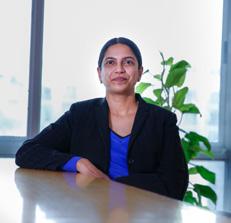

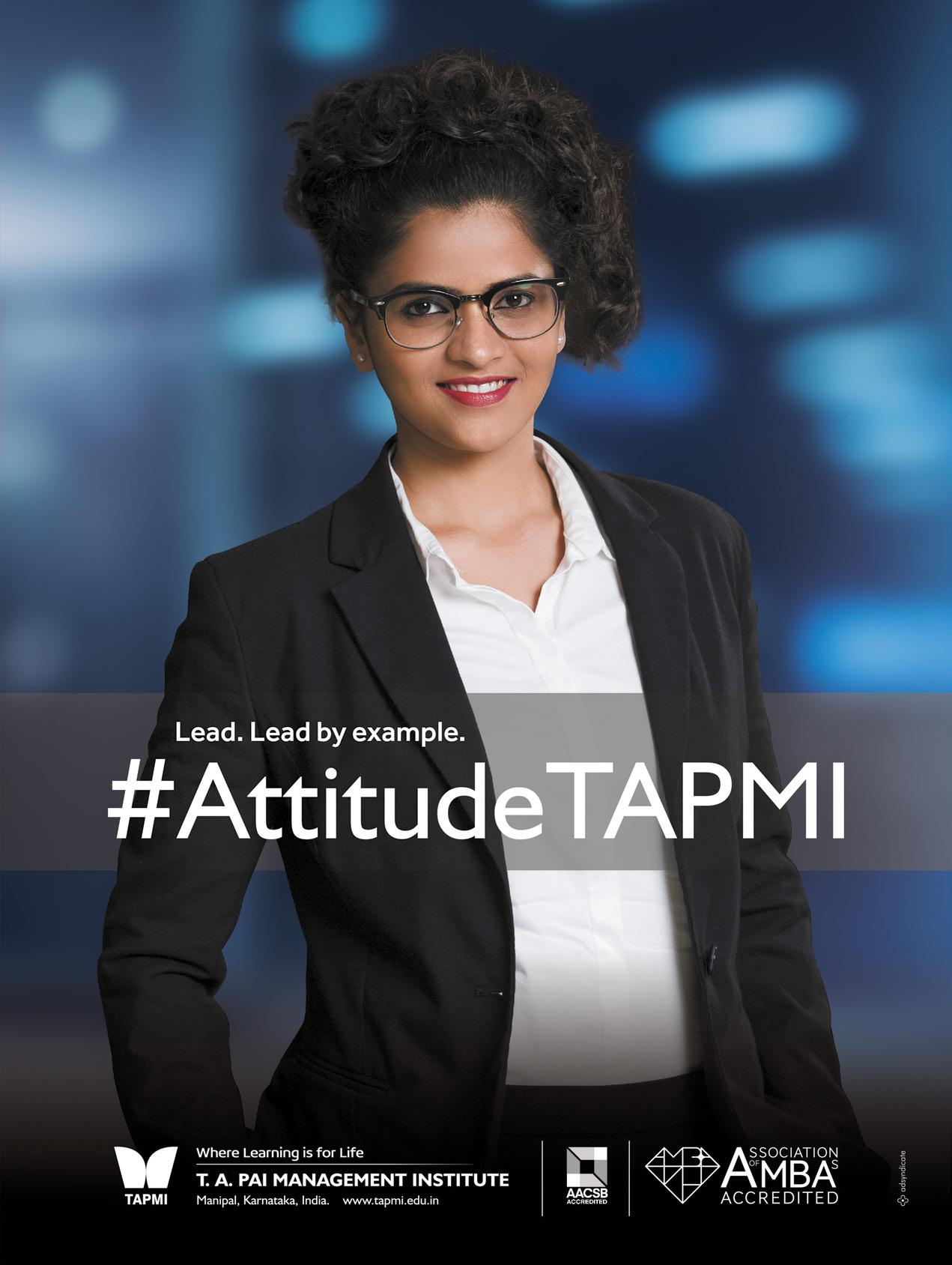


As the world comes to a new normal, people have begun traveling and enjoying life after two years of lockdowns and restrictions.
Though the hospitality industry took a hit, it has bounced back much stronger and more vibrantly in the last few months and is truly living up to people’s experience of a good time. Rosakue Hospitality is no exception. With its picturesque rooms and rustic themes, its accommodation is a perfect choice for a relaxing stay.
Rosakue Hospitality has boutique, lifestyle homes across the country, i.e. Nainital, Gurugram, Kolkata, Jaipur, Goa, and most recently, Shimla. As an entrepreneur, Deepika Arora, the founder of Rosakue Hospitality, says, “Entrepreneurship is no cakewalk, but the challenge doubled for me as I was carving my path in a male-dominated industry. My background as an architect and core experience working with global hospitality brands gave me a head start. Having said that, everyday life has been throwing new lemons

As our properties are boutique lifestyle homes, we managed our team by inculcating the 4-Cs of compassion, care, concern, and connectivity

at me, and I have been making lemonade… my way.” As she continues her journey to grow and thrive in the hospitality industry, she has proven to be one of the most inspiring businesswomen in India.
Deepika understands that growing a new brand in a relatively new niche segment has its trials and tribulations. These have been further amplified by the past two years of the pandemic. Nonetheless, Rosakue Hospitality continues to steadfastly deal with uncertainty due to new variants, global tensions, and frequent 'stopstart' scenarios. “The situation demands a regular reassessment of strategies and realignment of plans. Surprises spring at every step, but so do the thrills,” she shares.
Over the first three years since its inception, Rosakue has established a presence across six states with 12 homes and 12 more in the pipeline for launch by the end of the year. The home retreats have successfully built a steady and repeat clientele base. However, Deepika knows that there is a long road ahead and is gearing up to accelerate.
Rosakue Hospitality is the coming together of industry leaders and experts to assist with the operations of handpicked, exclusive hospitality assets offering curated lifestyle experiences
Rosakue Hospitality is the coming together of industry leaders and experts to assist with the operations of handpicked, exclusive hospitality assets offering curated lifestyle experiences. The brand is poised to be India's leading hospitality company, aiming to create and nurture shared values within locations and communities via local employment generation, upskilling and sustainability initiatives.

While Rosakue Hospitality is a hospitality company, they do not identify as 'hotels' in the conventional sense. Rosakue is your perfect homestay. “Each of our properties is a lifestyle 'H.O.M.E.' with hospitality that is outstanding, memorable, and enjoyable. The merger of these elements makes us unlike any other in the sector,” explains Deepika.
Despite the unprecedented global scenario, Rosakue Hospitality has much to cherish. By sustaining the team's motivation and managing to scrape through with the inevitable financial dents, Deepika reinforced their driving philosophy: ‘If you have the passion, we have the patience.’ In her opinion, an organization's culture reflects ‘ways to do things.’ Rosakue’s approach of 'patience and passion' in an atmosphere that encourages 'passion to succeed'
has helped steer the team ahead, despite the setbacks of the pandemic.
“As our properties are boutique lifestyle homes, we managed our team by inculcating the 4-Cs of compassion, care, concern, and connectivity,” Deepika shares. Capitalizing on the strength of relationship management, Rosakue Hospitality remains connected with guests and associates through the trying times. In parallel, the management made optimum use of the downtime during the lockdowns to strengthen the brand essence and refine business strategy in preparation for normalcy.
As a person from the corporate world, who has waded through many levels of ‘compulsion of the corporate framework,’ adoption of this entrepreneurial journey has been manageable for Deepika, though not without the burdens of financial constraints and pain. “My work is my elixir, but when my first love (Rosakue) is not on my mind, I like to work out, party and spend time with my little girl,” she explains.
Today, she actively focuses on escalating the brand to the next level by selectively adding properties in more destinations to the portfolio and continuing to strengthen Rosakue Hospitality’s position in this segment to cater to travelers' ever-growing desire to explore new destinations and experiential stays.



in B.com (Hons), Arushi Bhatia is extremely fond of dancing, cooking and reading. Her favourite hobby since she was a kid was designing clothes with her mom. It gave her the most amount of joy to sit and discuss the small things like colour combinations and accessories and silhouettes. She feels like the luckiest person to be able to make a living out of her favourite hobby.
One of the worst summers in India in over a century is currently underway (with heat waves hitting Central and North India almost every day). If now isn’t the right moment to worry about climate change, when will it be? Not only should you think, but you should also act. This reminds me of how Indian consumers are becoming more aware of what they are purchasing and, as a consequence, are more inclined to support firms that adhere to ethical and sustainable principles. According to AT Kearney’s analysis, over 70% of individuals surveyed in India stated they are seeking companies that are sustainable and trustworthy, which is significantly higher than their worldwide counterparts.
This sudden shift in customers’ preferences has compelled Indian brands to embrace more eco-friendly business practices. From product manufacturing to packaging and delivery, brands are implementing sustainable methods to please their customers across the spectrum. Clothing brands are one of the industries, which is facing the major impact of this shift. Gone are the days when organic fashion meant old-fashioned, uninteresting clothing. New designers are now creating incredibly unique and organic collections using textiles like Khadi and Hemp. What was once a race of fast fashion has now become a race of fairly compensating employees and adopting natural fabrics and dyes.
Of course, the pandemic of 2020 has shown us that whatever harm we cause to the world will ultimately catch up with us. Thus, increased education and awareness
have opened the eyes of a significant number of individuals, if not all. That is why Indian customers are ready to pay more for ecosustainable or socially conscious businesses in sectors such as vehicles, clothes, personal care, and fresh and packaged foods, and various brands, in order not to fall behind in this race, are catering to such organic needs of customers.
Sustainability is a major investment for companies, not just because of clients’ demands, but also because it’s the only way to survive in this world. However, while some
brands consider it as their obligation to future generations, others have taken the path of sustainability after learning that it would be mandated by law in the coming years. Various disasters, such as the Australian bushfire, have demonstrated that administrative authorities throughout the world will impose rigorous laws for all industries to protect the environment. As a result, companies are already implementing sustainability to avoid any future losses that may occur as a consequence of the strict laws.
This sudden shift in customers’ preferences has compelled Indian brands to embrace more eco-friendly business practices




Founded in 1985, Welspun began its operations in Palghar and grew to texturize in Mumbai and Gujarat for an IPO and became a public enterprise. Since its inception, Welspun has been one of the leaders in the global market of textile Today, it is the one of the largest producer of terry towels in the world, exporting more than 94 per cent to 50+ countries worldwide.
No company can be a success without an innovative leader. At Welspun India, Dipali Goenka leads the company as the CEO and Managing Director, making her one of the most inspiring businesswomen in India. “For over 35 years, we've been a global leader in home textiles. My goal was for Welspun to become an innovative, consumer focused, comprehensive solution provider to their retail partners Years down the line, these factors have become the DNA and growth pivots for
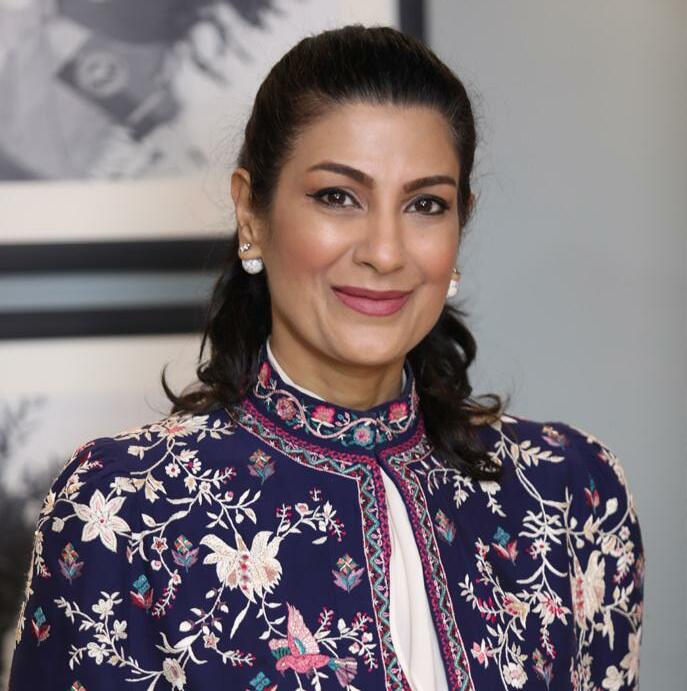
For over 35 years, we've been a global leader in home textiles. My goal was for Welspun to become an innovative, consumer-focused, comprehensive solution provider to their retail partners

the organization and differentiators to reckon with,” she shares.
With 35 patents, Welspun has the highest market share in the US and holds a dominant position in India and the UK. The company’s luxury label Christy England is the official towel licensee for the Wimbledon championships. The main focus at Welspun India is on the four main guiding principles - Customer centricity, Technology & innovations, Collaboration,
and Inclusive growth. Keeping this in mind, Dipali guides the team at Welspun with the sole intention of bettering themselves and the planet and keeping consumers’ well-being at the core.
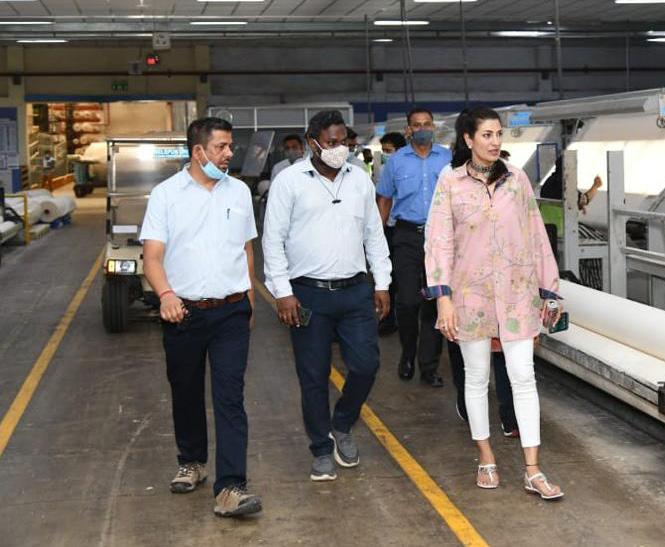
In the last couple of years, the global economy has been going through unprecedented times, with the pandemic and, more recently, the
upset in Europe due to the Ukraine-Russia conflict. This gave many companies logistical challenges, unseen levels of increase in commodity prices and high inflation in western economies that have dampened business sentiments across industries worldwide. But despite all these, Welspun India has delivered a strong topline performance – FY21 at Rs. 7,408 cr, growing by 8.4 % and for FY22 at Rs. 9,377 cr, growing by 26.6 %. Having
crossed the USD 1 billion revenue mark for the total company last year, the core business of home textiles crossed the US$ 1bn mark this year with revenues of ₹ 8,791 cr, growing 23.3% YoY.
Innovation continued to be a key enabler, propelled by Welspun’s patented products and processes, accounting for 27% of HT revenues in FY22, growing by 6% YoY. Emerging businesses of brands, eCommerce, flooring and advanced textiles continued on a strong growth trend, up by 44 per cent in FY22, accounting for 26 per cent of total revenues of the company, up from 23 per cent last year. The domestic retail business grew by 66 per cent in FY22 to reach the highest ever revenues.

Coming from a Marwari Family, Dipali never saw it as an obstacle to chasing her eloquent dreams. Today, as a mother, she realizes that she has to do her best to set an example for her daughters and reach her goals in a way that inspires them. “My inspiration stemmed from my mother, who taught me the time management skill. Due credit also goes to my husband, who has always been supportive throughout my journey,” she explains. From the start, it was clear that even though she would be joining Welspun, absolutely nothing would be handed to her on a platter. Thus, she created her own space within an already established network of functionalities and people. Starting from scratch and working her way up, Dipali found the journey to be a great learning experience, spending most of her time on the shop floor learning about the business processes, right from purchasing the
cotton and manufacturing methods to the speed of the machines. Understanding the various aspects of the job and closely observing consumer behavior was critical during these visits. “Looking back, I feel that this journey has been one of sheer hard work, dedication and most importantly, the belief that I could do it. It also strengthened my leadership skills and built empathy toward the team,” she says.
As the MD and CEO of Welspun, Dipali understands that there is a lot of attention and criticism in the public eye, be it constructive or destructive. However, she knows that the downs are a part of the ups, and criticism is a part of the praise. “I take it not as criticism but constructive feedback and try to work on improving myself and my work. As they rightfully say, you are your biggest critic; so as

far as you have faith, everything can be worked out. It is also important to have trust in your employees and the values you pass on to your team,”
Dipali entered the business world in 2002 and was met with cynicism. The textile industry then was largely male-dominated, with only 7% of the workforce at Welspun being women. This made it difficult for people to trust a
very little about it at that time. Once again, I had to start from scratch by learning the basics of the business,” she shares.
breakthroughs are the core of all business operations, and Welspun, with no exception, tries to inculcate the same in the company’s values and ethos
Another major hurdle was in 2016 when American retailer Target cut ties with Welspun India. Still in the training wheels of her career, Dipali decided to reassure customers worldwide by taking personal meetings to rebuild their trust in Welspun. Barring one, the company got back their clients and moved forward with the business. “We learned from this incident that our processes have to be tight. One has to maintain a process-oriented company rather than an individual-oriented one. I think our mistake if I can call it that, was our attitude that if things are going well, there's no need to interfere. In the end, learn from your mistakes and never make the same one twice,” Dipali explains.
woman leader, so making a mark for herself through the work and gaining the trust of her employees and colleagues was one of the main challenges during her early days at Welspun.
“Initially, I had started with a design studio. In 2003, I launched Spaces, a premium bed and bath brand. But, the global financial crisis of 2008 made me move to the textile business. It was a challenging situation for me since I knew
Sustainability and technological breakthroughs are the core of all business operations, and Welspun, with no exception, tries to inculcate the same in the company’s values and ethos. Welspun takes constant efforts to create awareness and small steps to make the planet a better place for future generations. The company has launched the Wel-Track 2.0 Blockchain, one of the textile industry's largest traceability and ESG transparency rollouts. The upgraded platform is designed to help drive transparency in the supply chain from farm to shelf. Welspun is one of the first home textile manufacturers to use a Blockchain and AI-based traceability platform at such a large scale, which captures all its product lines and major sustainability-related data points. These
include ESG metrics such as water usage, fair pay, power consumption, and gender equality. Further, Welspun has launched the Manthan program, which aims to encourage employees across departments, functions, offices and manufacturing units to develop impactful, innovative and adaptable ideas aligned with business goals.

Digitalisation has ushered in a new dimension of operations and value creation for businesses. Welspun’s belief in creating a culture of experimentation, innovation, and continuous improvement has made them embrace technology to leapfrog into a new future. Welspun is Asia's largest and the 2nd largest terry towel producer in the world, beside terry towel they also manufacture bedsheets, rugs and carpets. Welspun exports more than 94% of its home textiles products to more than 50 countries. Towel Counting using AI/ ML-based vision computing is at both plants in Anjar & Vapi.
Further, Welspun’s direct association with farmers through the Well Krishi program is also one of the unique aspects of Welspun. There is a strong interdependence between cotton farmers and the home textile industry. Welspun is dedicated to weaving its growth story as the fabric of the nation through sustainable and responsible practices. “We are working directly with farmers and are committed to supporting them with agronomic know-how, improving yields and getting better pricing,” Ms Dipali says. The Wel-Krishi initiative supports over 16150 farmers and 85000 farm workers across 387 villages for growing sustainable forms of cotton, for which there is a huge demand. Such interdependence between farmers and industry
must be encouraged for the welfare of the farming community. “We have already made a proactive shift both in our business strategy and operating model with a well-defined roadmap and targets that fulfil the principles of ESG,” she adds.
Unwinding is an essential part of everyday life. Ms Dipali unwinds by means sweating it out at the gym, Kathak and weight training, thus prioritizing both physical and mental wellbeing. “If you are passionate about what you do, the end of every productive day automatically puts a smile on your face. But letting off steam is key to coming back stronger the next day. I do this by spending quality time with my family, watching content on OTT platforms and making time for physical activities during the day,” she elaborates.
Until 2002, Welspun was primarily an exporter, and it was with Ms Dipali that the company championed the domestic retail market with ‘Spaces’. Thus, began her entrepreneurial journey within a well-established company, something that she was determined to make a success of. The launch of the home furnishing brand SPACES captured a significant market share and was an important milestone for Welspun. Since then, it has grown globally and is recognized today for its customer centricity, innovation, and sustainability.
The other milestone would be the increase in the number of women in the workforce. From 7%, the numbers rose to 30% women in the workforce, which is uncommon in the maledominated manufacturing industry. “I believe
business can be an agent of change, and all should embrace inclusive growth. Women need to have immense faith in themselves no matter what they believe in, and respecting yourself is of prime importance,” Dipali conveys. In the spirit of this belief, Welspun has announced its ‘Women of Welspun’ initiative to provide an environment of growth and opportunities for all women employees, institutionalizing progressive policies that actively help women to reach desired positions.
Welspun has also come a long way in terms of innovation. With it being the need of the hour, Welspun understands that the more one innovates, the increase in affinity for the company’s products. In addition, corporate social responsibility (CSR) is critical to the existence of businesses as giving back to society
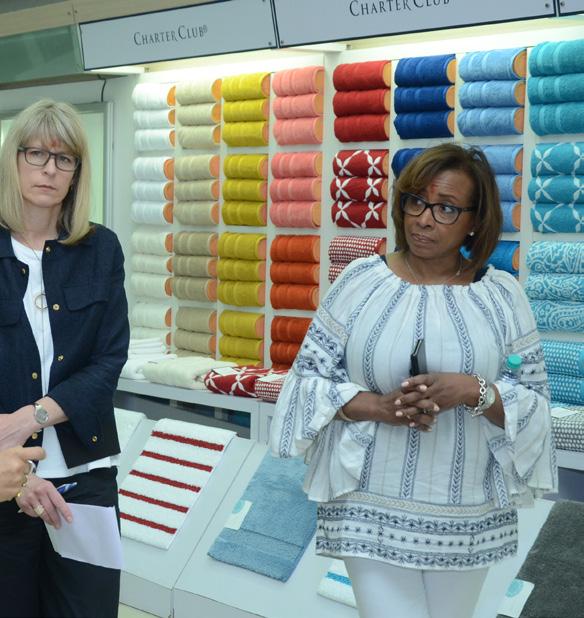
Welspun India has been rated by the Dow Jones Sustainability Index, one of the world’s most renowned sustainability indices, through the Corporate Sustainability Assessment 2021
is of utmost importance. Being recognized as one of the top companies in India for sustainability and CSR has also been an achievement for Welspun India. “Our sustainable brand SPUN blends important elements of circularity, livelihood for women and traditional crafts. It has recently been named as one of the Top 100 Corporate-Ready Social Enterprises, in a list by the World Economic Forum’s COVID Response Alliance for Social Entrepreneurs,” shares Ms Dipali.
Welspun India has been rated by the Dow Jones Sustainability Index, one of the world’s most renowned sustainability indices, through the Corporate Sustainability Assessment 2021. The company has emerged as one of the leading companies for sustainability, with a strong environmental performance and significant improvement in the social and governance impact parameters. Welspun recently won the National Water Award, announced by the Ministry of Jal Shakti. The recognition came on the back of the social and environmental impact made by Welspun’s cutting-edge sewage treatment plant in the drought-prone Kutch district. Frost & Sullivan and The Energy and Resources Institute (TERI) also recognized Welspun India for their sustainability practices and impact on the environment and communities at the Sustainability 4.0 Awards.
To be sustainable, innovative and ‘vocal for local’, Welspun focuses on the new logistics park in Bhiwandi, hoping to emulate these values. It has been certified as a platinum-rated green project by the CII and continues to be developed as per the global standards and green building certifications. The company has increased its
nationwide footprint to 4,288 outlets and 80 towns with the brand name Welspun vis-a-vis 3500+ outlets and 66 towns in Q4. Further, Welspun’s goal is focused on increased sustainability efforts. As a leader in the manufacturing sector, the company see extraordinary possibilities to increase positive impact, from their aim to be carbon and water neutral by 2030, obtain 100 per cent of the cotton sustainably or impact a million lives through Corporate Social Value (CSV) interventions by 2030, Welspun’s ESG efforts drive measurable results.
The pandemic has changed consumption and purchase patterns drastically. Home products are in greater demand than they were earlier. As more people work from home, there is a higher demand for hygiene products like towels and wet wipes. Retailers even in the West are also stocking more of these. So, Welspun plans to focus on increasing production to meet the demand.
Moreover, digitization and online transactions are growing rapidly. “We had forayed into the e-commerce segment much before the pandemic and were operating the Omni channel through the introduction of our e-commerce platform SPACES, which offers products online in the bed and bath category,” shares Dipali. During the pandemic, the e-commerce platform had seen massive growth and increased sales, especially in Tier-II and -III cities, and that is where the aspiration for the brand is growing. “The belief that gives me the strength to handle pressure and remain calm amidst all the challenges is that, ‘The only way to do great work is to love what you do.’ One should constantly keep looking for inspiration and not settle. Challenges will make us and take us ahead if taken in the right spirit,” shares Ms Dipali as a final note.
 IN MY VIEW
IN MY VIEW

The capacity to digitise quickly, maximise the use of Big Data Analytics, and improve customer experience through e-commerce will be the most important difference as businesses embark on digital transformation. Over the last two decades, rising disposable incomes and a trend toward a consumptiondriven culture have aided India's FMCG industry is charting new development routes. Significant elements that have contributed to the sector's transformation in India include increased product variety across food and non-food categories, the proliferation of wellness items, and increased age and
gender-specific segmentation. In recent years, there has also been a larger emphasis on promoting products as 'healthier' and 'herbal,' as people become more aware of the need of eating nutritious foods.
The FMCG industry is now the fourth biggest in the Indian economy, with household and personal care accounting for 50% of the market, while healthcare and food and drinks account for 31% and 19% of the market, respectively. Despite a recent slowdown in the Indian economy, the FMCG industry is likely to continue growing in the next years. Nielsen predicts that the FMCG industry would increase at a 9-10% annual rate in 2021.
The increased usage of digital technology is one major reason that will continue to drive the FMCG industry to higher development routes shortly
Ms. Arpita Doshi is the Founder of Nutrition Dynamic Food, a pioneering provider of food and beverage premixes, she oversees Business Development and Research for the organisation, two vital tasks that help any business develop a sustainable business model. In a situation where the FMCG sector in India is plagued by businesses that have raised enormous capital to achieve scale but remain largely unviable, Ms. Arpita Doshi has been leveraging her past experience in the Research and Development to build a commercially viable business model for the company from the first year of business itself.


The increased usage of digital technology is one major reason that will continue to drive the FMCG industry to higher development routes shortly. From increased usage of digital marketing to more e-commerce customisation, a rising number of sector participants are now aggressively adopting digital technology to drive the next phase of growth amid fierce competition. The capacity to digitise quickly will also be a critical differentiation between firms as they shift to meet new requirements.
The problem here is that the software allows shops to purchase directly from manufacturers, circumventing the usual distributor system. With FMCG being the country's fourth-largest business, with retail sales exceeding $1 trillion in 2020, distributional issues are nothing new. They've fought over everything from margins to physical territory, but this technology perspective is novel. The introduction of the Reliance Jio Mart and IndiaMART applications has dealt a significant blow to established wholesalers. The software allows stock orders to be placed across geographical borders and straight from the corporate warehouse. As we will see later, this has various repercussions.
The Covid epidemic has had unimaginable effects on many businesses, and technology has come to the rescue hugely. From a consumer standpoint, e-commerce has reached a new high. When the conventional distribution staff was unavailable, modern tech-savvy distributors reached out to merchants via WhatsApp (due to social distancing). This hastened the development of an omnichannel system to unprecedented levels. The proliferation of 'data-enabled smartphones' (420 million in the country) has encouraged many merchants to embrace and employ applications
Direct last mile coverage boosts brand visibility and allows for more effective retail control and communication. Overall, customers benefit from consistent supply availability and service
for a variety of purposes. Real-time data-enabled better and faster supply chain decision-making.
1) An ordering app allows businesses to securely submit contactless orders while also providing visibility into order fulfilment via logistical partnerships and user-friendly interfaces.
2) Digitizing manufacturing and constructing automated warehouses increase capacity and agility. Intelligent data and analytics fuel all of this, assuring seamless and optimised operations.
3) If a retailer believes that goods are running low, they can make an order between any two salesperson visits. Because digital orders are not tied to a salesperson's beat (especially during the second wave of COVID when a salesman is unable to visit the outlet), the outlets themselves can make an order. Companies may now give greater support to salesforce by customising the pitch for a shop so that they choose the most appropriate stock-keeping unit thanks to improved analytics (SKU).
Until approximately a decade ago, the FMCG industry in India was best represented by local convenience stores, malls, and sales reps. Today, the FMCG sector is as pervasive as mobile technology. However, the FMCG sector's digitization effort is not limited to the front end.
Today, there is greater internet and mobile penetration, a shift in rural purchasers' consumption patterns, and an increase in the importance of the three "Vs" - videos, vernacular material, and views. These considerations are causing businesses to engage in digital efforts to better communicate with diverse stakeholders.
The key differentiator in the market for FMCG companies will be their capacity to quickly digitise
the value chain, form alliances for manufacturing, distribution, marketing, and product development, and use data analytics to better understand consumers and shoppers to maintain and possibly improve customer experience.
Technologies such as big data, predictive analytics, and social media are also making significant contributions to the shift in the path. Customer behaviour may now be predicted almost accurately by cherry-picking purchasing behaviour.
The Jio Mart app problem has highlighted a bigger picture of how 'technology' may dramatically split the distributor fraternity and affect them in a splintered way.
Leveraging TechnologyModern (tech-savvy) distributors employ WhatsApp, big data, AI, and machine learning to ensure seamless and automated operations for both their consumers (retailers) and producers. Traditional distributors, on the other hand, employ software platforms given by FMCG businesses; yet, many of these distribution salespeople are still unfamiliar with the technology. This disparity in total technological proficiency between some and others produces schisms in the short run in terms of company ease and profitability.
Over 90% of India's FMCG sector is still unorganised, and any technological intervention leads to differential adoption across urban and rural areas, resulting in working capital variations. Those that have access to the applications gain from more regular stock replenishment, allowing
them to service their clients (retailers) without stockouts. Their reduced inventory levels also imply lesser working capital, which results in a higher ROI (return on investment). The situation is considerably different for folks who are not technologically proficient and hence unable to download the app. They keep a bigger inventory to compensate for less frequent deliveries, resulting in worse returns on investment. As a result, in this example, the results obtained by the two sets of distributors create discontent.
Last-mile coverage has long been a concern for conventional distributors. Numerous geographical areas are outside of the coverage zone due to the variety of our country and the difficulty of access to many places. However, technology has largely levelled the playing field. 31% of rural residents use the internet, while 61% have smartphones (2021 data). Modern distributors have taken full advantage of this. They now get orders from smaller Kirana businesses that would otherwise have to travel to neighbouring cities or large bazaars to stock their shelves. Direct last mile coverage also boosts brand visibility and allows for more effective retail control and communication. Overall, customers benefit from consistent supply availability and service.
While technology is a fantastic facilitator, as seen above, it has produced uneven benefits. The supplier-distributor relationship is extremely complicated and interdependent. Companies must treat them as extended family and help them during these difficult times when conventional distributors face risks from both the epidemic and contemporary apps. Similarly, distributors must recognise that their survival in the capitalist market is contingent on technological advancement and the acceptance of new trends. Constant exemptions and assistance from FMCG businesses will not help in the long run.
The country's current distribution system is the product of continuous improvement by FMCG businesses in response to distributor needs to serve retailers and customers without compromise. The reaction and comments offered by distributor salespeople provide the organisation with much-needed ground-level expertise to create and launch market-relevant items. This viewpoint should not be lost when implementing new technology that alienates a specific segment of the channel. Technology is an inevitable evolutionary process, and a hasty decision to choose 'app-based' distribution may produce trade structure divides that are impossible to reverse if not managed wisely.
The country's current distribution system is the product of continuous improvement by FMCG businesses in response to distributor needs to serve retailers and customers without compromise
 BUSINESS WOMEN
BUSINESS WOMEN



Manu Saigal is the Director of General Staffing at Adecco India, with over two decades of experience in PnL management, framing and executing new initiatives, people management, and detailed task, and resource planning. Her areas of expertise lie in building long-term customer relationships across industries, creating winning teams, and setting up new businesses and practices from scratch. Manu’s entrepreneurial ability and
skills in translating vision and delivering on high-impact decisions make her one of the most inspiring businesswomen in India.
For Manu, growing up as a child in an army family meant being constantly on the move every two years and studying in over 17 different Kendriya Vidhyalaya's across the nation. It also meant getting early life lessons on adaptability and change, with qualities such as discipline,
Manu Saigal

Throughout the journey, I have played on my strength of connecting with people, building relationships, and being authentic to my team, organization, & customers

integrity, and commitment becoming a part of her personality.
During high school, Manu’s first moment of glory came when her CET results were published in the newspaper. Recalling that day, Manu shares, “I still remember the puzzled look on my father’s face reading the results in the morning newspaper, him immediately leaving for the CET office to double check, and then coming home with loads of sweets and a big smile on his face that won’t stop.” As an academically bright student, Manu might have made her parents proud as a child
earlier as well, but that day holds a special place in her heart till today.
Going ahead, Manu pursued her BE degree in Electronics and Communication from the University of Mysore. However, during her last semester in college, Manu was at crossroads. She had to choose between an SSB call for Defence services and an offer letter from Wipro Infotech. Manu chose the latter and never looked back.

In 2015, Manu joined Adecco India as the Delivery Head and soon moved to lead IT Staffing as a Business Head. Then on, she continued to rise through the ranks and excel in all her responsibilities. Manu considers breaking the stereotype of a delivery person to leading the PnL as her first biggest career milestone while getting handpicked by Adecco’s management, who had confidence in her abilities, to lead PAN India’s General Staffing sector as her second biggest milepost. “Throughout the journey, I have played on my strength of connecting with people,
building relationships, and being authentic to my team, organization, & customers,” says Manu.
The Adecco Group is a leading global Fortune 500 HR solutions industry leader, enabling job aspirants and businesses to seize the opportunities of the future of work. With its unique 360° service offerings, Adecco India has the expertise and prospect to shape new ways of working. The leading HR solutions provider offers lifelong employability for individuals and empower organisations to augment their talent ecosystem developing capabilities in areas where persistent skills shortages exist in pockets and connect relevant and new-age talent to leading Indian and multinational organizations, thereby adding real value as a partner.
While commenting on Adecco India’s robust performance over the last few years, Manu shares, “Adecco India delivered a solid performance in 2021 with remarkable improvement in our revenue, gross margin, and EBITA margin as compared to the previous year and driven continued investments in digitalization and sales capacity to capture the growing market and business transformation.”
As the Director of General Staffing at Adecco India, Manu mentions that one of the biggest challenges of today is attracting and engaging the younger workforce. Instead of being attracted by money or the title, millennials want to become leaders who inspire others, make a difference in
Adecco India delivered a solid performance in
2021 with remarkable improvement in our revenue, gross margin, and EBITA margin as compared to the previous year and driven continued investments in digitalization and sales capacity to capture the growing market and business transformation
the world, and lead companies that care more than the bottom line.
Therefore, Manu suggests that rather than waiting for the yearly review, business leaders need to take regular time out to check in with their millennial team members, find out where they're struggling, and offer necessary coaching to them. Initiatives such as these will help build their millennial employees' trust, loyalty, and dedication.
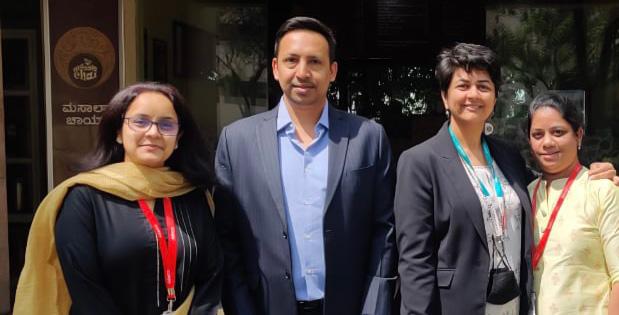
Manu considers herself lucky to be married into a very supportive and educated family that has always emphasized professional growth and development. “I won’t be wrong in saying that Ankur, my husband, is more ambitious for me than I myself,” shares Manu with a smile. Today, as proud parents, Manu and her husband are also witnessing a strong inclination toward education and career in their daughters.
However, there have been times when Manu’s family has taken precedence, whether standing by her mother's side when she was fighting cancer or becoming a daughter to her mother-in-law after her father-in-law’s demise. “Both these instances have shaped me as a more grounded and empathetic person,” reveals Manu.
A typical working week for Manu consists of meeting with her clients and connecting with her team. She also believes that learning is a lifelong process necessary for self-growth and success. In light of this, Manu is pursuing PGPMax for Senior Executives from the Indian School of Business (ISB, Hyderabad), which will further enhance her skills in general management, strategic thinking, and cross-functional knowledge, and help expand her network of senior executives. “I believe ISB can help me prepare for the next career goal in a much more structured framework,” says Manu.
Likewise, Manu
a firm
Shlokas from Shreemad
one should focus on the work and not the fruits.
considers this philosophy as her mantra for staying calm even under pressure. As for unwinding from work, Manu enjoys watching films with her lovely daughters, Khushi & Mehhar, and socializing with family and friends on weekends.
In the wake of the COVID-19 pandemic, Adecco had a robust set of systems and processes that virtually enabled its entire team of employees to work remotely. Moreover, to further support the mission during such turbulent times, the company's senior management team created a Pandemic Response Plan that accompanied its Business Continuity Plan. This plan included
forming a Crisis Steering Committee (CSC) tasked with assessing impacts (HR and economic) and providing guidance to Adecco’s colleagues, associates, and clients. The CSC committee established work streams for Business Continuity, Human Resources, Technology Support, and Communications. Critical office locations were armed with several control mechanisms, including work from home, network, security testing, and safe interaction spaces.
According to the pandemic response plan, Manu and her team at Adecco India worked in lockstep with clients by following their local protocols and safety measures. “We assessed each suspected case of COVID-19 amongst our associates on a case-by-case basis and, after consultation with our clients, implemented actions to minimize any impact on business,” reveals Manu. “Likewise, we ensured all our Account/ Branch Managers were constantly in touch with our stakeholders.”
At Adecco India, Manu and her team believe that the staffing industry has an important role in helping workers and organizations steer the recent workforce shifts by making responsible choices.
“The steps that we take today will have a lasting impact, and this has prompted us to make it our mission to support our stakeholders by being even more agile, innovative, and responsive,” shares Manu. “We offer a truly differentiated set of solutions to our clients, associates, candidates, and the wider economies where we operate to better navigate within this new environment.” In the future, Adecco’s relentless focus will be to provide sustainable and lifelong employability to individuals, thus adding value to society.

Communication and Networking being her core strengths , Sonali is a vivacious PR Professional from Mumbai. She started her entrepreneurial journey in April 2014 with Public Relations being her forte and has ever since been churning new ideas to expand new business horizons. Sonali holds a Masters in Business Administration with Marketing as her specialization. She is actively involved with marketing intelligence, market research, brand management and ATL/BTL marketing. Having worked into customer service during her early days of career, she possesses enhanced experience in dealing with international clients. Her current profile involves global brand positioning, communication and media strategy.
Do we as agencies pride upon taking the client’s feedback constructively? Or are we stuck in the dilemma between ‘the client is always right’ and ‘we are the experts’ leading to discomfort and draining creativity?
Clients select agencies for their social media management based on several groundscreativity being the first. As the client and the agency get engaged, the chances of differences of opinions and ideas in the initial phase are
really high. The agency generally may think out loud with their creative zeal while the client may expect subtle and sober designs or vice versa. Many-a-time, the client has real high expectations from the agency of creative concepts for every single post; but each idea gets subjected to rejection. And thus begins the lovehate relationship between the client and agency, which eventually could lead to disagreements and a sour taste. In these delicate moments, how
Understand clearly by probing questions about the styling, designing and the theme the client wants to follow

do we as an agency with creative minds at work, tackle the equation between the teams?
Here are a few points for agencies to ponder upon, to be able to deliver the best and stand out as their go-to partners for marketing:
1. Placing your thoughts is as important as listening to feedback: While suggesting an idea, they may want to tell you that it cannot work out or shouldn’t be done, without even listening to your story. Make sure that you are heard and you complete sharing your thoughts with a valid reasoning. Word play acts as a great tool in such situations, while you may not want to sound rude but assertive.
2. Tone down your creative mind from wild ideas: We are bound to come across as loud and flashy, given the risk taking attitude a creative mind is loaded with. Understand clearly by probing questions about the styling, designing and the theme the client wants to follow. While wanting to adhere to the client’s expectation, you still have room to suggest bending a rule.
3. Set their expectations right: It is important to state terms for no. of times one can suggest alterations, right at the beginning of the engagement. Two to three sets of alterations may be considered as fair play, given the exclusive thought processes at both ends.
4. Propose the design rather than the concept: Create now and edit after. Who knows where your creative mind will go? First design the concept with your initial instincts and then ask for as much feedback as possible, for
changes. This may sound like extra effort, but would give them clarity rather than an abstract idea left to thrive on their imagination.
5. Do not promise them the world: Honesty is the best policy when it comes to stating what you can deliver. Find out what they want to achieve. Site examples if need be, of past projects of similar nature to make the client understand what is possible for you to deliver and what isn’t.
6. Establish regular conversation: Let communication be flowing soon after the initial kick-off meeting. Make weekly meetings a mandate between teams for improvement discussions and feedback. The feedback needs to be a two-way street with the correct usage of words and tonalities. Clients are happy when they are informed and connected to their agency.
7. Make room for expressing your ideas: Some clients may come across as adamant while imposing their ideas and that often restricts the flow of creative juices. Don’t be bogged down. Advocate your concept without being emotional and keep digging out new concepts which you may use another time.
Working with creative agencies can be equally challenging for the client at the same time. It is crucial to evaluate our merits and shortcomings as an agency and continuously work upon them to create happy client experiences. The fun also lies in tackling challenges and converting them into opportunities to gain trust and be referred with confidence by the client as an agency that walks an extra mile!
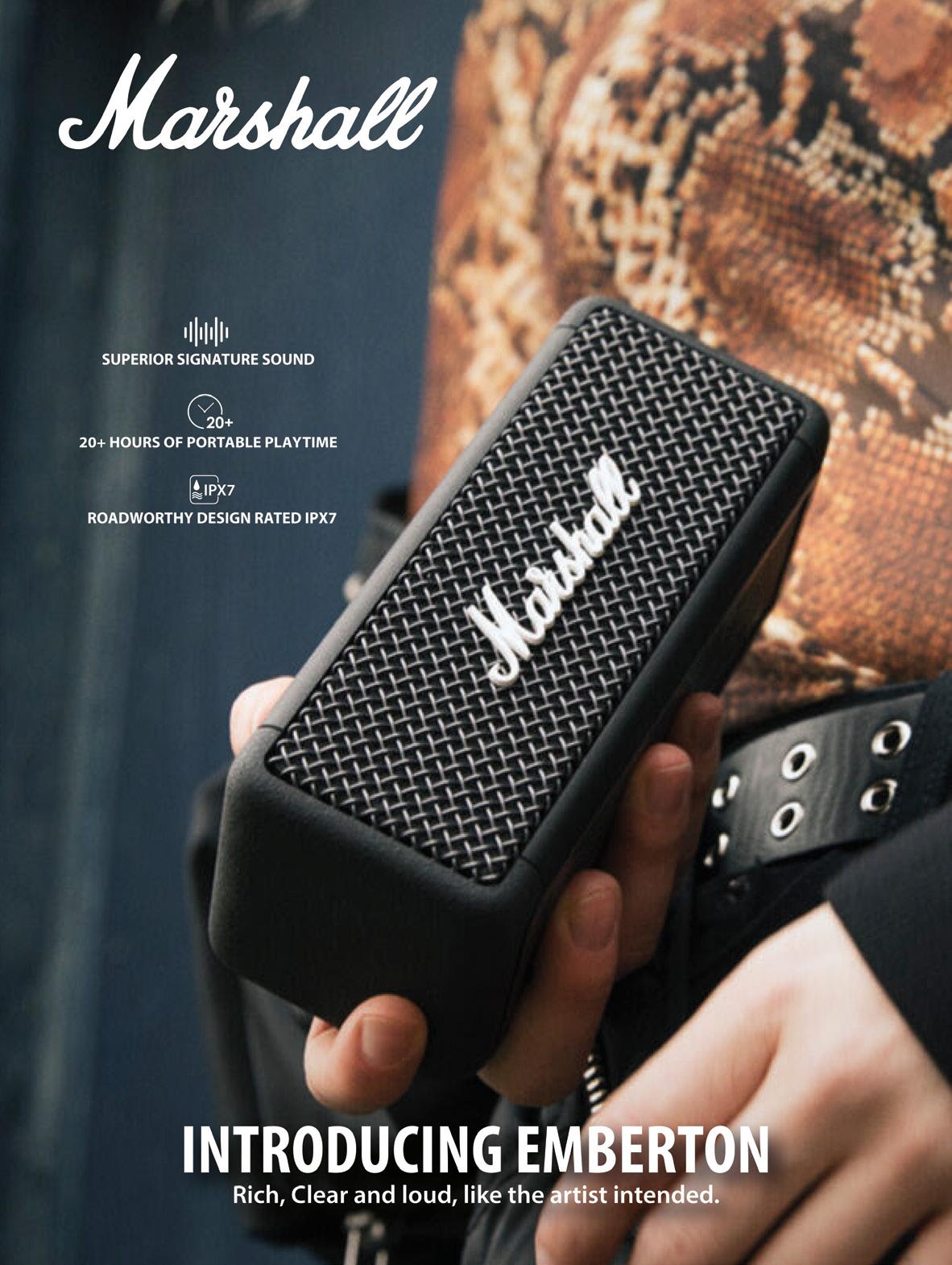


Yukti Nagpal, Director of Gulshan Group, is one of the few women leaders who has made a successful career in the traditionally maledominated field of real estate.
With promising and innovative marketing strategies, Yukti has positioned herself as a pioneer in premium, high-quality housing construction in the real estate industry. By combining technology with Yukti's ingenious ideas, the Gulshan Group has ushered in
a new era of productivity and cultivated customer confidence.
Since its inception in 1989, Gulshan has left a remarkable legacy of three decades of building storeys. Gulshan was founded on the premise of true intention, beginning as a company that built high-quality homes without cutting corners. The founder, Mr. Gulshan Nagpal, believed that by building his own first home, he could create genuine value for an entire class of people around him who could


When you get realistic and hard-nosed, challenges do not affect you. They change you into a more experienced, well learned and inspiring leader that your team would like to look up to
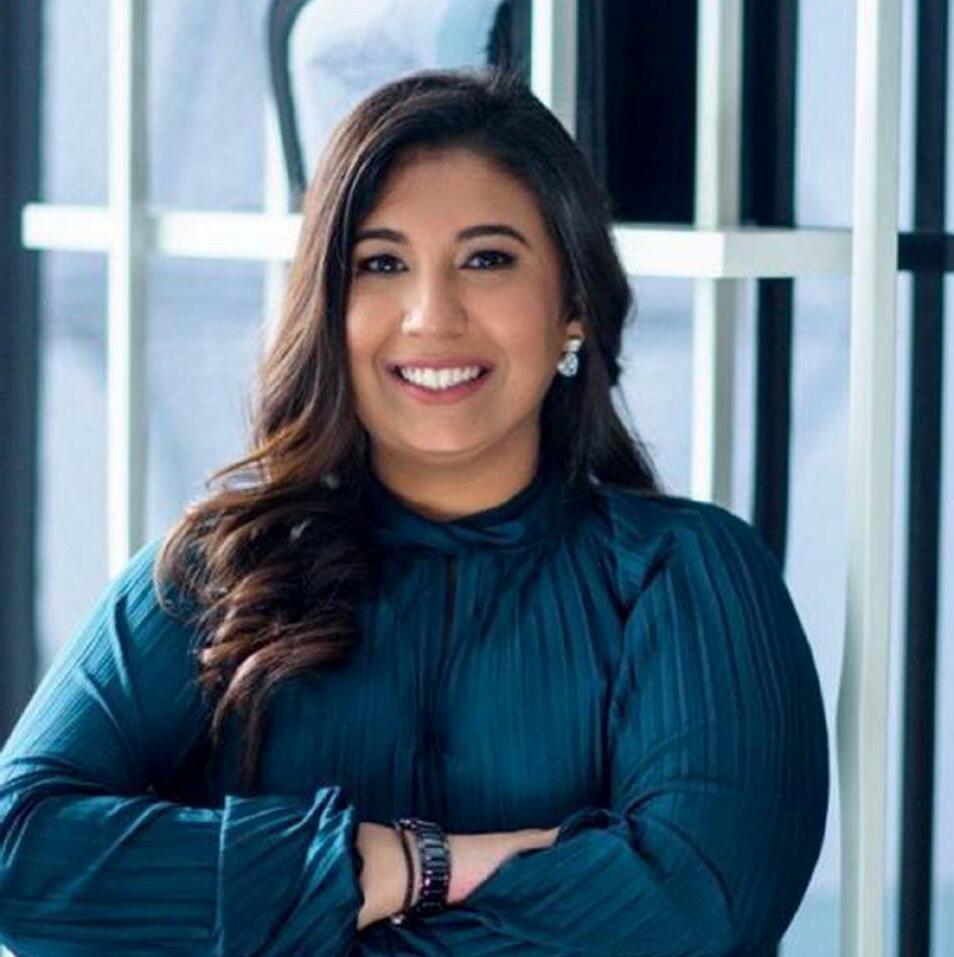
not find reputed builders or developers who could deliver with honesty and expertise. This became the impetus for greatness: Mr. Nagpal carried out his newly conceived dream of building premium housing for everyone with the highest quality that the industry had yet
seen. Mr. Nagpal is now backed by a team as dedicated to perfection as he is, contemplating the best for clients and fulfilling their needs.
A new Gulshan is emerging with a force of vibrant professionals, as Yukti Nagpal, director of Gulshan, announces the arrival of a new

team of experienced real estate professionals. She brings zealous ambition and a fresh arsenal of ideas, and her indomitable spirit and talent inspire many within the organisation. She comes armed with a bachelor of business administration from Amity Business School and a Master of Science in marketing from Golden Gate University.
Her career began as a marketing intern at Gulshan Group, where she spent significant time analysing customer behaviour and researching real estate market trends. Yukti shares, "But in retrospect, I see it as one of the most fulfilling experiences of my life. It made me the leader I am today because it taught me to survive, adjust, and excel in every situation or condition that life throws at me. These are the values by which I lead my team, and I am grateful for them to put their unalloyed trust in me."
Yukti always endorses, encourages, and incorporates creative, unique, out-of-the-box, and never thought-before ideas that not only become the trademark and mojo of Gulshan Group but also elevate the standards of real estate in India. She considers creative power to be the currency of any organisation. When innovation stalls, the company is doomed to fail. Aside from that, in the age of the digital revolution, consumer tastes are rapidly
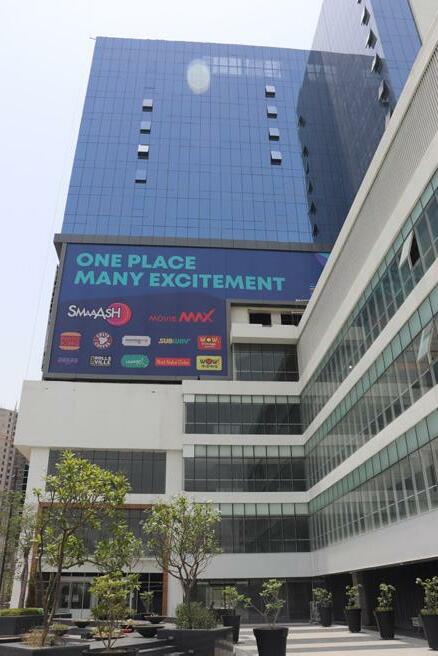

changing. Yukti says, "It is one of our top priorities to keep tabs on the demands and aspirations of people and fulfil them through the medium of our projects." It is one of the company's founding principles, which is also what keeps it relevant and robust today.

The progress of Gulshan has been indubitably magnificent over the last 6 years. Although the pandemic had devastated the Indian economy, the team managed to grasp its hold over the markets due to the talented crisis management team and advisory teams

instituted by the top management. Yukti recalls, "The pandemic threw challenges that we did not preempt. It was fairly challenging for the business gentry across the sector, not only for us. However, we were all prepared to deal with the complications as they had robust internal management in place." They are also prescient that it is a short-lived quandary with a shelf life, and once the cases begin to drop, the situation will return to normalcy. Yukti says, "I firmly believe that challenges are the doors to new opportunities. It makes you strong, resilient and grounded. I have had my own share of my challenges as the market conditions are never in a static position or favoured on your side always."
Yukti believes that amid a million good news stories, there will be fluctuations, ups and downs, and a few disappointments. When overcoming obstacles, she has taken a selfmotivated and determined approach, which entails maintaining a go-getter, stoic attitude and not getting thrown over a few hiccups. She says, "When you get realistic and hard-nosed, challenges do not affect you. They change you into a more experienced, well learned and inspiring leader that your team would like to look up to." Within a time span, Yukti witnessed a renewed buyer engagement which was corroborated by various industry reports projecting a significant increase in luxury housing sales. "It showcased many new trends in home buying & hybrid working, which we adopted in our strategy," added Yukti.
Gulshan Group has always encouraged an innovative culture in the workplace. The company has completed nine projects and is currently active in the residential and
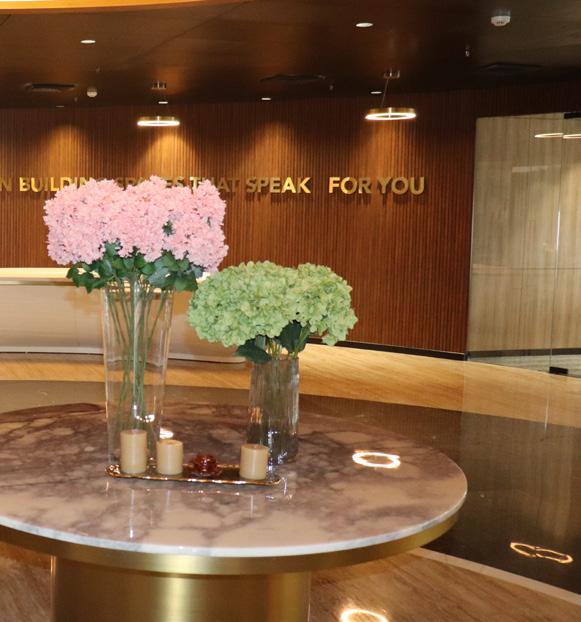
As the Director of Gulshan Group, in the company's best interests, Yukti always endorses, encourages, and incorporates creative, unique, out-of-thebox, and never thought-before ideas that not only become the trademark and mojo of Gulshan Group but also elevate the standards of real estate in India
commercial segments; it is well-known in India for redefining luxury property standards. Yukti underlines, "I am here to strengthen the everexisting traditions of innovation and expand it to all organs of the company. On a global level, we are witnessing waves of technological changes in living spaces and other real estate formations." Under the Gulshan umbrella, two projects are ongoing, and four projects are in the pipeline, which will be launched within FY 2223. "Our clientele has often praised our projects for their supreme construction quality, abidance to strict protocols and construction guidelines and people-friendly and transparent customer relationship management," highlights Yukti.

Gulshan Group has completed nine projects and is currently active in the residential and commercial segments; it is well-known in India for redefining luxury property standards
The Gulshan Group's value system revolves around originality, passion for work, ensuring quality deliveries, and enshrining the inter and credibility principles. Yukti shares, "Our company has bagged 40+ awards which sanctify our credibility in the real estate business." Gulshan has always prioritised technology adoption in its development plans. Their company's identity is providing smart homes with luxury features and amenities. Yukti adds, "We have always made grandscale investments to ensure this, and we will continue to do so. The customers' buying patterns have empirically confirmed that ROIs with stable balance costs are guaranteed."
Yukti triumphs in the fact that women leaders have found their own voice in the real estate spectrum over the last decade. Previously, there were many biases and stereotypes associated with women holding nodal positions in real estate organisations, which have been significantly dispelled by several female achievers. It was previously assumed to be a man's domain. She says, "As far as my individual experience is concerned, I have spearheaded commercial and luxury living projects like Gulshan Dynasty, which has drawn a tremendous response from all quarters and the real estate fraternity. However, the most significant milestone has been to be able to carry my father's brand to new heights and make a name for myself through my talent, skills and perseverance."
In her spare time, Yukti enjoys listening to music, relaxing, and meditating to let her mind escape negativity and embrace positive thinking. Despite this, the office is her favourite place to be. She says, "It might
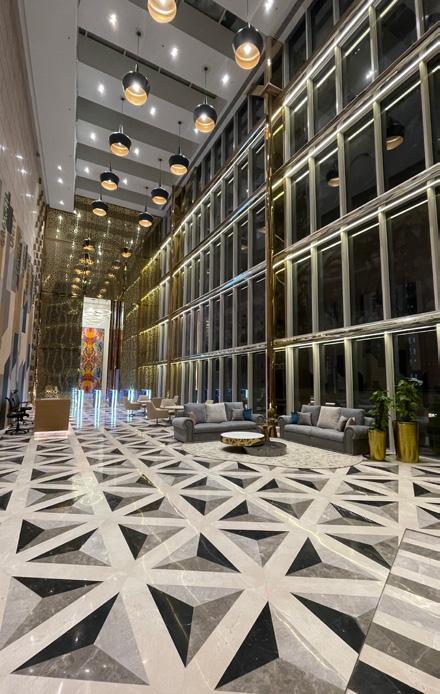

sound normal and mundane, but working at my office, is the most satisfying and enriching period. I take project updates, manage the teams, resort to conflict resolution, formulate a plan for the company's future and address all other concerns."
Gulshan is aiming for a highly anticipated project that has been introduced after extensive research is Gulshan Dynasty, a luxury residential project located in Sector 144, near Noida-Greater Noida Expressway. "I have the vision to establish Gulshan Group as the most chosen option for luxury living projects and commercial destinations, making NCR the epicentre of modern real estate developments," said Yukti. It is envisioned to create an indelible mark of luxury in a prime NCR real estate hotspot, with a variety of high-end amenities including customisable homes, a 7-tier security

system, a Clubhouse, Gymnasium, Pet Stead, and Hydroponic Farming facilities, among others.
Yukti added, "Our company also has plans to expand our operations to different cities and states in a bid to leave a stamp of brilliance and serenading luxury living experience across India."
Yukti says, "A few of uber-luxury projects are in plan to be launched in coming quarters & expansion plans to other cities to continue the legacy of our brand to deliver excellent experiences." The post-pandemic plans will centre on the construction of sustainable buildings and green environments, which have become the top buyers' demand since the pandemic. "It is a collective consciousness of our organisation to implement every measure to keep sustenance and ESG-friendly policies at the plank of building plans and do our bit in mitigating the global climate crisis," concludes Yukti.


Our ever-versatile leader, Eesha Bagga, Director at Mindler, has been awarded the Young Woman Entrepreneur of the Year by the prestigious Business World Women Entrepreneurship Summit & Awards 2021 & BW disrupt. Eesha is a people’s person who brings to the table a diverse set of skills and experience in business and coaching. An alumna of the University of Delhi and IIM Lucknow, she has also pursued her Life Coaching from International Coaching Federation. At Mindler, she heads Partnerships and Alliances and is absorbed with creating and implementing strategies that help increase brand awareness, create alliances, and acquire new business.
As the world has evolved, so have the options of careers, students can aim for. Gone are the days when our education system was confined to a handful of career domains. Students today have the freedom to choose from hundreds of career choices. While this is certainly a boon for our education system, it does come with its caveat i.e. the need for the right career counselling systems, and how to implement them in a streamlined manner.
While the need for education counselling systems is quite evident, the implementation of the same often becomes difficult, due to the various challenges the industry poses. Let us look at a few of those concerns and discuss how we can implement an improved system efficiency.
The world of careers may have evolved exponentially but the decision-makers and the stakeholders in the space are still not aware of the emerging possibilities. This lack of awareness often makes them limit students to exploring only a handful of popular career domains. These limitations are often seen in the form of reluctance to consult a career counsellor, pursuing career paths based on hearsay or past success stories; and students often end up missing out on potential opportunities to identify their best-fit career paths.
The need for proper education counselling isn’t something that has gone unnoticed, but instead, one that has now been recognised by the New Education Policy as well. What is lacking however is the use of the modernday, current, and relevant counselling tools.
A comprehensive and reliable psychometric assessment, tools, and frameworks to focus on profile building, exposure to virtual internships and skill-building opportunities, and access to databases of colleges, exams, and scholarships; can all be had under one platform today. Making this transition to technology-driven career decisionmaking platforms can enable us in creating a sustainable career guidance ecosystem for students.
3. Hesitance to embrace technology Career guidance through technology-led tools can be extremely powerful as it can reduce bias in the decision-making process and enable personalization. Stakeholders in the past have been reluctant to embrace technology but the pandemic has managed to push a massive change on this front. The willingness to accept technology and make it a part of the education curriculum is now a reality. The fact that hybrid learning is the future is now a well-accepted fact and it opens an amazing opportunity to implement comprehensive career guidance solutions for students.
With a large portion of our schools lacking a career guidance system, there are at least 1.5 million career coaches that are needed in our country. If our teachers are trained on the kind of career opportunities that emerge from the core subjects they teach, they can contribute in a massive way by increasing awareness about various career pathways amongst students. Currently, this is a big gap in our system. Training and upskilling the educators through simple certification programs on career guidance can be a blessing for the students in the system, and a solution that can have a lasting impact on the future as well.
While the challenges may be more, what we should be focusing on are the solutions. Tech-based solutions and tech-based counselling systems integrated with quality guidance from educators and career coaches can enable every institution to have a proper counselling ecosystem that can be implemented in a streamlined manner. This is not a short-term change we are aiming for, but one that needs to last in the future as well. We have had the answer all along, all we need is the proper tool to implement it and see the impact it can make.
The world of careers may have evolved exponentially but the decision-makers and the stakeholders in the space are still not aware of the emerging possibilities





Prerna Goel, Co-Founder & CMO, WhizCo
Prerna Goel, CMO & Co-Founder, WhizCo. Graduated in English Literature from University of Delhi. Master’s in Business. Administration (marketing) from University of Mysore. Prerna Goel, the co-founder and Chief Marketing Officer at WhizCo, is a young and spirited individual with an entrepreneurial mindset. She co-founded WhizCo along with Aastha Goel and Keshav Jindal in a bid to redefine the digital marketing space in the country, which has conventionally relied on the modus operandi of uploading content across different social media boards. A DU graduate and MBA by education, it was her penchant for new-age technology that persuaded her to disrupt the marketing and influencer engagement ecosystem.
Technology is rapidly evolving in the context of the digital retail industry, and social commerce and instant deliveries are likely to have an increased impact on the retail business. Still, there is another factor that is altering the landscape, and that is the Metaverse. The Metaverse is taking social commerce to the next level. Social commerce in its true sense evolved in 2014 when Twitter launched its “buy now” button, which enabled shoppers to buy
products via a social media platform instead of retailers’ e-commerce websites. Ever since then, social commerce and digital retail have evolved exponentially. Users now shop without leaving their social networks from any device of their liking.
A few years ago, most consumers were not even familiar with the term “metaverse,” and it definitely was not heard of to buy clothes that only exist in the digital world and not in the
As the technology and adoption of these technologies expand, it will bring in even more features that combine offline and online shopping experiences

real world. But now, we see the list of retailers opening up digital storefronts is growing, and an increasing number of consumers are participating in the virtual shopping experience to the extent that the Metaverse had its fashion week. This event was the first of its kind and left a mark on the retail industry as more than 60 brands participated in the event. The development of the metaverse will probably continue to evolve several times over the next decade, and it is important that brands prepare for this next era of digital retail.
Social commerce in the Metaverse will grow leaps and bounds in the coming years. As the technology and adoption of these technologies expand, it will bring in even more features that combine offline and online shopping experiences.
A rising number of buyers may now confidently assess the fit and quality of a product before making a purchase, thanks to augmented reality technology. Convenience-wise, this
benefits consumers but also helps retailers by lowering returns and growing their clientele.
Personalization and product discovery will both speed up. Brands will be able to provide customers with highly customised digital experiences thanks to metaverse technology. Customers will find it simpler to discover precisely what they want, exactly when they want it, thanks to the seamless experience of the Metaverse. The Metaverse will also give marketers the ability to scale customization of the buying experience to reach more customers than ever before, in contrast to the existing constraints of personalised digital shopping experiences.
In the Metaverse, the space between social media and e-commerce will continue to shrink. As evidenced by the significance of Amazon and other online product reviews, social proof is already at the heart of e-commerce. Building vibrant communities that enable customers to interact with the brand and other customers of the company will allow brands to expand social proof in the Metaverse beyond just a star rating.
Another critical component of the Metaverse is NFTs (non-fungible tokens). NFTs will be helpful to brands for various novel uses to enhance the buying experience. NFTs will be used to develop new digital products. Additionally, they will serve as receipts, passes for special events, or even early access to the debut of new products. NFTs can provide a variety of VIP chances to a brand’s most ardent supporters and customers.
The ways that technology will change e-commerce are still being explored. E-commerce as we currently know it will start to exist almost entirely in the Metaverse as these technologies advance and the distinctions between the real and digital worlds become hazier.
As evidenced by the significance of amazon and other online product reviews, social proof is already at the heart of e-commerce

